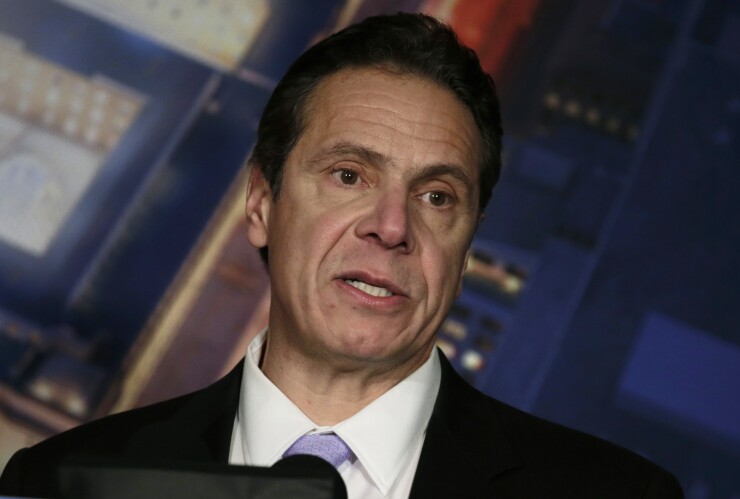WASHINGTON — The New York State Department of Financial Services' attempt to expand its authority over fintech companies could be shot down by state lawmakers.
New York Gov. Andrew Cuomo's proposed budget for next year includes
But a copy of the New York Assembly's budget bill obtained by American Banker left that part "intentionally omitted."
The proposal would have expanded licensing requirements to all companies making personal loans of $25,000 or less, or commercial loans of $50,000 or less, to New York residents — regardless of the interest rate charged.
This would have effectively expanded licensing requirements to a number of online lenders, as well as banks chartered in other states that partner with them.

Some fintech advocates were pleased by the news.
"The state is making it difficult for out-of-state state banks to just lend at all in the state," said Jeremy Rosenblum, a partner at Ballard Spahr.
More licensing requirements would also discourage fintech companies from operating in the state, he said.
"It is a total nightmare to try to get a license from the New York Department of Financial Services," Rosenblum said. "Many companies are not just going to go through the pain of that licensing process."
The state Senate similarly is likely to dump the measure in its own budget bill, said several people familiar with the matter, speaking on the condition of anonymity.
But if this happens, changes could still be made in committees.
“While a number of provisions affecting banking have been omitted or modified, negotiations will continue on these and other issues" until the budget deadline on April 1, Michael P. Smith, president and CEO of the New York Bankers Association, said in a statement.
Other provisions affecting the financial industry disappeared in the lower house's budget, including a provision to ban "bad actors," as determined by the New York Superintendent of Financial Services, from working in a state-regulated financial institution.
That measure was also widely panned in the industry.
"A disqualifying event is so broadly defined in the legislation that it is unclear what the standards are for triggering such an event other than the discretion of the superintendent," New York's Business Council said in a memo. "This expansive authority to arbitrarily decide what actions can qualify under the broad spectrum of the definition without due process is inappropriate."





